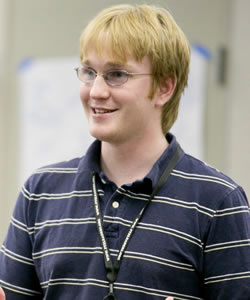Religion has always influenced politics. Although it works differently between people, as long as religion serves as inspiration in the lives of believers, its tenets will be expressed in their candidates and in their votes.
That’s not a bad thing. Although religion has been used to oppress in the past, it also liberated, serving formative roles in the movements for abolition, fair labor practices, and civil rights.
The problem today is that politics influences religion. With the counterculture revolution of the 1960s, and the rise of the Christian right in the 1970s, religion’s moral role in policy discussions became a partisan role in electoral politics.
Putnam and Campbell’s
exhaustive study in American Grace reveals several current-day effects of this “God gap.” In tracking Americans’ social values over several years, they found that political conservatism was a positive, independent variable in determining religiosity—not the other way around!
We catch a glimpse of this politics-driven trend in the
Berkley Center’s recent social survey of millennial-generation Americans. Five years ago, evangelicals were more likely than any religious group
to reject Mormonism’s claim to be a Christian religion. In the survey, however, evangelicals were
least likely to consider Mitt Romney’s religious beliefs different from their own.*
The political nature of religion today has devalued discourse about God and displaced Americans from their true religious beliefs. Interestingly, these ills make Putnam and Campbell optimistic for the future. Politics has confounded our religious landscape, they argue, but like an economy of ideas, religion’s place in American life will return to its natural equilibrium.
Hopefully, they’re right. But parallel to
my response to E.J. Dionne’s presentation was a fear that religion may take on a greater role in this generation’s politics. America’s
non-white population will become a majority by 2050, and they vote Democratic in remarkable numbers. To stay in business, the Republican Party must start winning Hispanic, African-American, and Asian votes.
Although economic attitudes may shift, the only historical link between the GOP and minority voters is a strong, Christian religiosity. If these groups join hands in the end, they may do so while holding a cross.
As a liberal person of faith, I find this possible future dystopic. Faith is more complicated than sound bites delivered on cable news. The profound and mysterious relationships by which people engage their God should not be categorized by party, on one hand, or remotely confined to the private sphere, on the other.
I believe that Americans agree. I hope that the future breaks this binding dichotomy. But for now, we can’t say anything for sure.
*
This apparent inconsistency could also be caused by different attitudes toward Mormonism between older and millennial evangelicals. That the questions are incongruous could also change responses. But the jump from furthest
to closest
in self-identified proximity to Mormonism in these questions suggests that something else was at play. Politics is the obvious variable.
